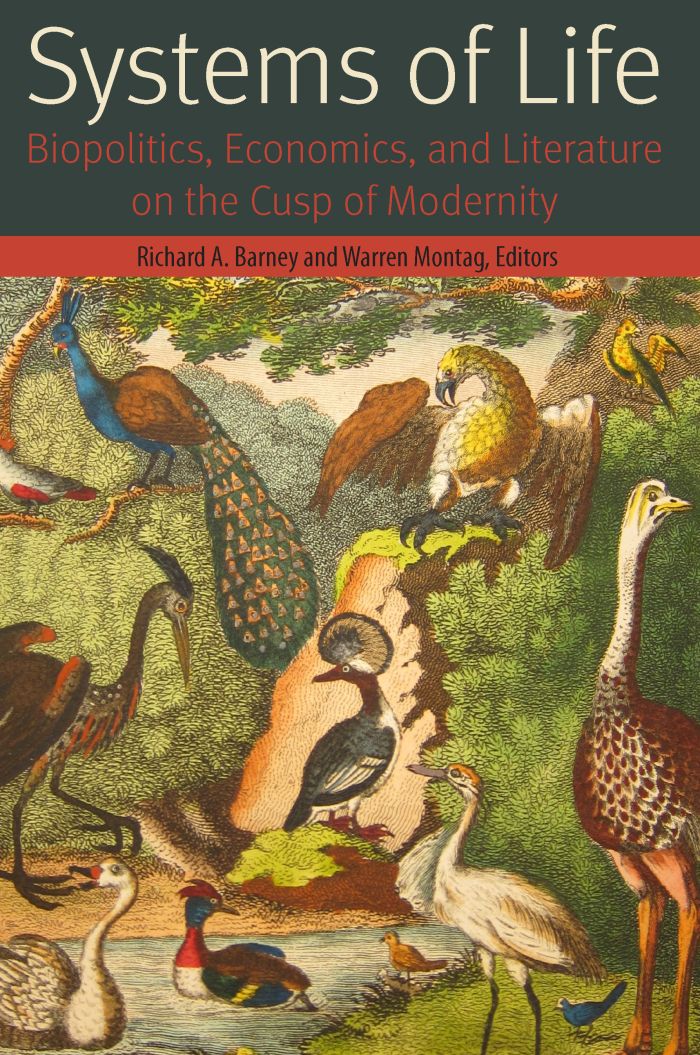Systems of Life
Biopolitics, Economics, and Literature on the Cusp of Modernity

This book can be opened with

This is an unusually strong collection of interdisciplinary essays. Barney and Montag have brought together a group of mostly younger or mid-career scholars who pursue questions of economy, biopolitics, and literature in a variety of fascinating ways. There is not another collection quite like it in print.—Robert Markley, University of Illinois-Urbana-Champaign
In its willingness to hold multiple registers in tension, Systems of Life models how these kinds of collections can continue to expand our analyses of the relationships between disciplines, cultures, and aesthetic traditions.—Eighteenth-Century Fiction
Richard A. Barney is an associate professor of English at the University at Albany, SUNY. He is the author of Plots of Enlightenment: Education and the Novel in Eighteenth-Century England (Stanford University Press, 1999) and has edited several volumes, including Rhetorics of Plague, Early and Late for the Journal for Early Modern Cultural Studies (Winter 2010–11). He is currently at work on a book about the biopolitics of the sublime in eighteenth-century Britain.
Warren Montag (Edited By)
Warren Montag is the Brown Family Professor of Literature at Occidental College in Los Angeles. His most recent books include Althusser and His Contemporaries (Duke University Press, 2013) and The Other Adam Smith (Stanford University Press, 2014). He is also the editor of Décalages, a journal on Althusser and his circle, and the translator of Etienne Balibar’s Identity and Difference: John Locke and the Invention of Consciousness (Verso, 2013).
Introduction: Systems of Life, or Bioeconomic Politics
Richard A. Barney and Warren Montag 1
1. Looking for (Economic) Growth in the Eighteenth Century
Christian Marouby 35
2. An African Diasporic Critique of Violence
James Edward Ford III 56
3. Rousseau: Vital Instinct and Pity
Pierre Macherey 82
4. System and Subject in Adam Smith’s Political Economy: Nature, Vitalism, and Bioeconomic Life
Catherine Packham 93
5. Vitalism’s Revolution: John Thelwall, Life, and the Economy of Radical Politics
Richard A. Barney 114
6. Writing Generation: Revolutionary Bodies and the Poetics of Political Economy
Annika Mann 135
7. William Blake and the Time of Ontogeny
Amanda Jo Goldstein 162
8. Concerning Hunger: Empire Aesthetics in the Present Moment
Mrinalini Chakravorty 201
9. The Hero Takes a Fall: Gravity, Comedy, and Darwin’s Entangled Bank
Timothy C. Campbell 236
List of Contributors 257
Index 261

